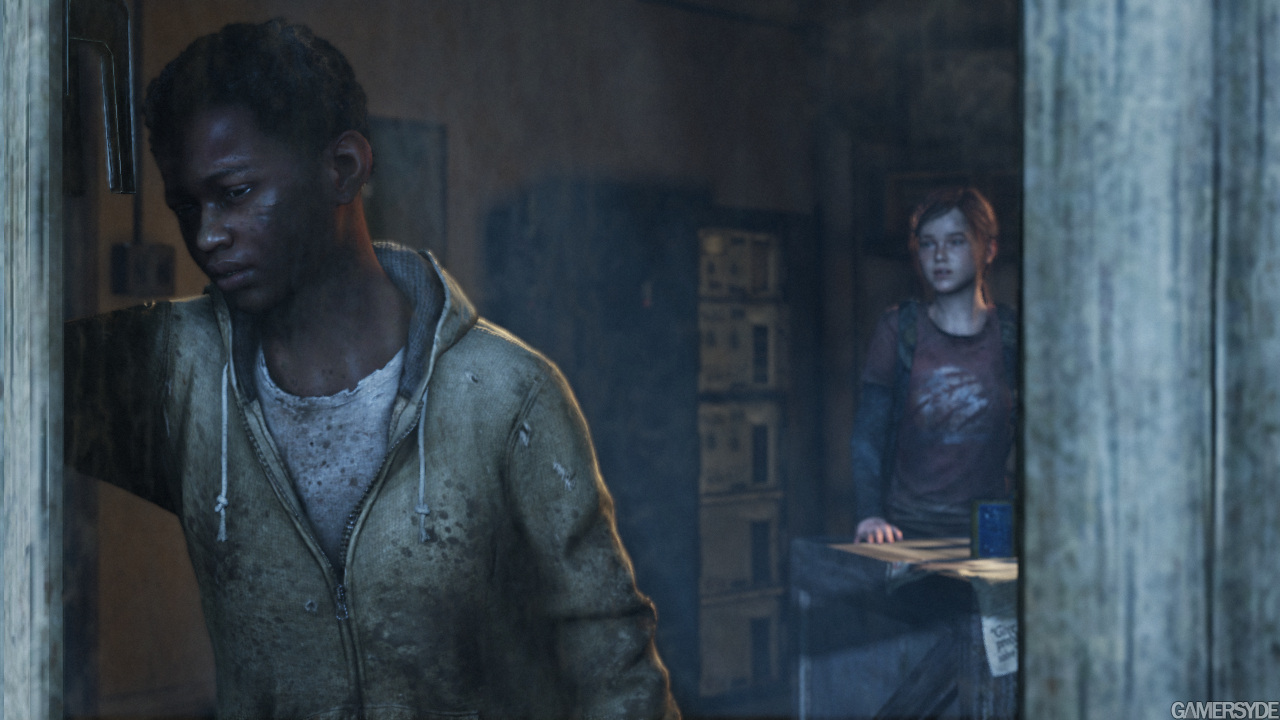In 2006 my mom did one of the many amazing things she has done for me throughout my life: she preordered a Wii at the local GameStop. I know what you’re thinking, “Alex, that doesn’t actually sound like a super amazing thing; I mean what games actually ever came out for the Wii?” This was the first step in a long process of me growing up. I was 13, in the 8th grade, and my mom took her lunch break to go to the mall and preorder the Wii and a few extra controllers for me. I was at school, of course, and I knew that if I didn’t preorder it there’d be no way I’d get it. She told me later that she was number 23. What a champ.
 On November 16th, 2006 me and a friend woke up bright and early at 9am on a Sunday, hassling my mom to wake up, to head off to the mall and pick up the console. I had done the research, and the work. This was the first console I would buy with my own money, trading in my own GameCube since the Wii would play its games, as well as saving up all of my allowance for months. A proud moment for me, a moment where I could feel like I was on the cutting edge and, “in the know,” as far as having access to games and technology. Twilight Princess was the one thing I needed, having been excited since the reveal of its first trailer several E3s beforehand. Suffice to say, me and my friend played Wii Sports all morning and had a blast.
On November 16th, 2006 me and a friend woke up bright and early at 9am on a Sunday, hassling my mom to wake up, to head off to the mall and pick up the console. I had done the research, and the work. This was the first console I would buy with my own money, trading in my own GameCube since the Wii would play its games, as well as saving up all of my allowance for months. A proud moment for me, a moment where I could feel like I was on the cutting edge and, “in the know,” as far as having access to games and technology. Twilight Princess was the one thing I needed, having been excited since the reveal of its first trailer several E3s beforehand. Suffice to say, me and my friend played Wii Sports all morning and had a blast.
[youtube id=”UUdU77vV_x8″ width=”600″ height=”350″]
Today, in 2015, maybe I look back at the Wii with a more cynical perspective: it didn’t have that many games, it was dropped by third parties and the motion controls were a gimmick from day one, never to be truly and fully realized. But nine years ago? I was excited. For the first time, I was excited to be a part of a conversation, an ever-evolving medium with a single platform that quite literally changed the games industry. I remember taking the Wii to my friend Scott’s house. He is one of my co-hosts on Irrational Passions Podcast, and a good friend. We played it in his basement soon after launch with his whole family, and after losing a match to his mom at Wii Boxing, I talked with his older brother Will. Will said, and I’ll never forget it, “Sony, they’ve got HD graphics with the PS3 but this, this is just fun.”
At that time in my life I was happy owning just one console, just that Nintendo staple with Mario and Zelda would be enough for me. In 2006 I was a completely different kind of “gamer”, I played for fun and for story. I played because I’d been playing since I was a kid and I didn’t think about it too much, video games were just my pass time. To me, this was sports, or competition, or reading; this was my way to escape from the world and experience something else. If you asked me then why I loved games as much as I did, I may not have been able to tell you. Today, I do know, and that is thanks to three video game machines: the Nintendo Wii, the Playstation 3 and the Xbox 360. I grew up on this generation, and buying that Wii with my own money was just the beginning of that.
Adolescence is usually the period in time where kids like to experiment. They’re teenagers, and as they go through puberty, they realize that they have all these thoughts and feelings. Before then, I don’t think you’re really cognisant of the world around you or how you fit into it. Maybe you never felt particularly masculine or feminine before then, but when you’re 16 it’s natural to try and experiment, figure out who you really are. It just so happens I went through this part of life as the previous generation of consoles released on shelves; in a way, I grew up with them. They were my “90s”, the age or era that helped define me. It might seem childish to say you were formed or shaped by a generation of video game consoles, sure, but I think this past generation actually changed that. While I was growing up, video games were growing up too.
For Christmas in 2007, my parents chipped in and got the family a Playstation 3. At this point, my interest was piqued; it wasn’t like the launch year anymore, there were actually games coming out. At this stage, I was still getting the hang of checking news sources, finding reviewers I could mesh with, getting a grip on what outlets really held my interest. It was also in 2007 that I listened to my first ever podcast, Episode 101 of MuggleCast, listening to someone, anyone, talk about the end of Harry Potter. From there I moved on to Show Me Your News, a video game podcast made entirely to talk about Super Smash Bros. Brawl (my most anticipated at the time) and the first video game podcast I’d ever listened to. I was getting on the right track, but we’ll get to that in a little bit.
 My mom and I have a long kept tradition of playing video games together (I even wrote an article about it!). That game for PS3 would be Uncharted, which me and her were both interested in because it seemed to have that Indiana Jones vibe going for it. We cracked into it and both loved it. It was really my first exposure to high definition games, outside of a little Elder Scrolls IV Oblivion I played on my brother’s Xbox 360. I really got to sink time into the PS3, experience a lot of games outside of my previous interests. Here, something clicked for me: that conversation I wanted to be a part of, I thought that maybe I could actually do it now. I could hold my own in a chat about the depth of these games. That should have been my first hint, but it’d still be a while before I realized this was the industry I wanted to work in, to cover, to respect and to show others who didn’t understand why these silly toys for adults were so important.
My mom and I have a long kept tradition of playing video games together (I even wrote an article about it!). That game for PS3 would be Uncharted, which me and her were both interested in because it seemed to have that Indiana Jones vibe going for it. We cracked into it and both loved it. It was really my first exposure to high definition games, outside of a little Elder Scrolls IV Oblivion I played on my brother’s Xbox 360. I really got to sink time into the PS3, experience a lot of games outside of my previous interests. Here, something clicked for me: that conversation I wanted to be a part of, I thought that maybe I could actually do it now. I could hold my own in a chat about the depth of these games. That should have been my first hint, but it’d still be a while before I realized this was the industry I wanted to work in, to cover, to respect and to show others who didn’t understand why these silly toys for adults were so important.
It was that time I spent with the PS3 that really changed my perspective when it came to playing games. There was a really long part of my life where I’d write something off if it was an M rated game. They’d be too serious, or violent, and I’d shy away from them. In 2008, as I started listening to more video game podcasts, starting with That Video Game Podcast, then Podcast Beyond, and of course The Giant Bombcast, those experiences started to intrigue me more and more. Games like Bioshock and Fallout 3 sprung to the tops of the lists of games I wanted to play. I wanted depth, I wanted to interpret video games past their face value and I wanted to evolve my experiences in a medium where my time spent was mostly juvenile.
Greg Miller, someone who I am blessed to consider a good friend now, said something on Podcast Beyond then that really hit home; he talked about wanting to write, to review and to criticize games, and how that medium changed completely for him when he played Metal Gear Solid on Playstation. It was then that he saw that games could be so much more, and that those experiences could be deep and new stories that couldn’t be told quite the same way in any other medium. That was the moment that I realized I wanted to be a video games “journalist,” or critic. I wanted to be a part of that press that asked more of games than just running and jumping, but could appreciate those mechanical aspects all the same.
Two years later I started a podcast called Irrational Passions Podcast with two of my good friends, and with it,  I started a website: http://ippodcast.net. I started writing reviews for the site, and publishing content there regularly. My entrepreneurial spirit overtook me, and by the end of the year I was receiving review copies and writing with a new member to the team, Joseph Fait, on that site. I was growing and extending, editing someone else’s work, workshopping ideas and putting my creativity into a force. I wouldn’t have done any of this if I hadn’t elevated my interest in games from a mere passerby, a consumer of the content, to a consumer and creator of new content around that. I wanted to make people think about games as art, and more than that, believe that they could tell rich stories that elevate emotions, help you learn something about yourself that maybe you didn’t know before.
I started a website: http://ippodcast.net. I started writing reviews for the site, and publishing content there regularly. My entrepreneurial spirit overtook me, and by the end of the year I was receiving review copies and writing with a new member to the team, Joseph Fait, on that site. I was growing and extending, editing someone else’s work, workshopping ideas and putting my creativity into a force. I wouldn’t have done any of this if I hadn’t elevated my interest in games from a mere passerby, a consumer of the content, to a consumer and creator of new content around that. I wanted to make people think about games as art, and more than that, believe that they could tell rich stories that elevate emotions, help you learn something about yourself that maybe you didn’t know before.
Games were a big part of growing up for me not just because those stories became deeper but because they introduced me to new ideas and ideologies, just like television and movies have done for the generations before me. When concepts like karma and player choice or agency became mechanics in video games, that became a kind of “safe place” for me to experiment with my beliefs. Whether it was stealing and feeling guilty in Fallout 3 or trying to save all of my crew members in Mass Effect 2, I was challenged to grow, it seemed, through these experiences. Many of my friends always opt to the “evil” or “renegade” karmic paths when given the choice, but I’m always aspiring to be the best me I can be. I role played, and emulated the kind of decisions and desires I wanted out of life in these games. Did I want to hurt and torture someone to help someone else? These were playgrounds, sure, but they also read to me as forums to passively commentate on your own inward philosophies.
[youtube id=”W8vzaj5omzA” width=”600″ height=”350″]
That could be reading too deep into it, but I feel like thats exactly the kind of thing an adolescent mind would do. You’d always read too much into something, or expect too much from someone. Mass Effect wasn’t the only deep experience I’d have in the generation though, it’d just end up being one of the more memorable ones.
Sitting down and playing The Last of Us in 2013, as a true close to the Playstation 3/Xbox 360 generation of consoles, may be one of the most rewarding experiences of my life. That’s one of those tales and stories that will never be forgotten, as both a graphical and technical achievement, but one with heart and depth in a medium that is often criticized for its lackthereof. There is a specific cutscene in The Last of Us about half way through that broke me down and brought me to tears, which as I’ve joked before, isn’t the most difficult thing in the world, but was nonetheless impactful to me on a very personal level. When Ellie talks to Sam about whether or not she believed in God, I was blown away by how much I connected with her in that moment.
It was just a simple aspect that we both agreed on, but the way she phrased it resonated with me because, if I could ever imagine putting it into words, that’s how I’d say it. This video game had elevated itself past two characters talking, to two people talking about life, something that other mediums attempt and achieve quite often. Maybe it was my proud sibling/parent moment for me, seeing this second where I could actually watch games become something that really, truly mattered, but I was just blown away.
Watching franchises like Uncharted and even to a lesser extent Gears of War evolve through their own series’ was a growth experience for me. These games were about groups of characters interacting with one another, and the focus was on how they evolved through each story. Even an experience like Journey, one of the best games of that generation, sticks out in my mind as something that deeply affected me. While not a character experience, Journey is something that reflects back on the player in a very real and deep way. It’s beautiful, simple and tells a story of life and death; an experience I’ve only ever had once, and remember every second of, like a true moment of life.
The concepts and ideas explored in the generation really changed my life, helped make me who I am. Maybe I’m being a bit too figurative here, but on a very real level, I learned a lot about myself through these games. It was a weird melancholy experience buying my PS4 and acknowledging the end of the previous generation; it meant that all of these threads felt like they had really truly ended. Shepard was gone, Joel and Ellie reached the end of their journey, the Capitol Wasteland was behind me and I felt excited at the prospects of new IPs and new stories that would crop up with this technology.
I’m still excited, especially coming out of E3 2015, and after writing about these gaming experiences for over 100 days now. I wanted to be a part of this conversation, and now I feel like I am in a big way. I learned that about myself with this past generation; I feel like I am a demonstration of how video games, however innocuous, can change your life for the better.







